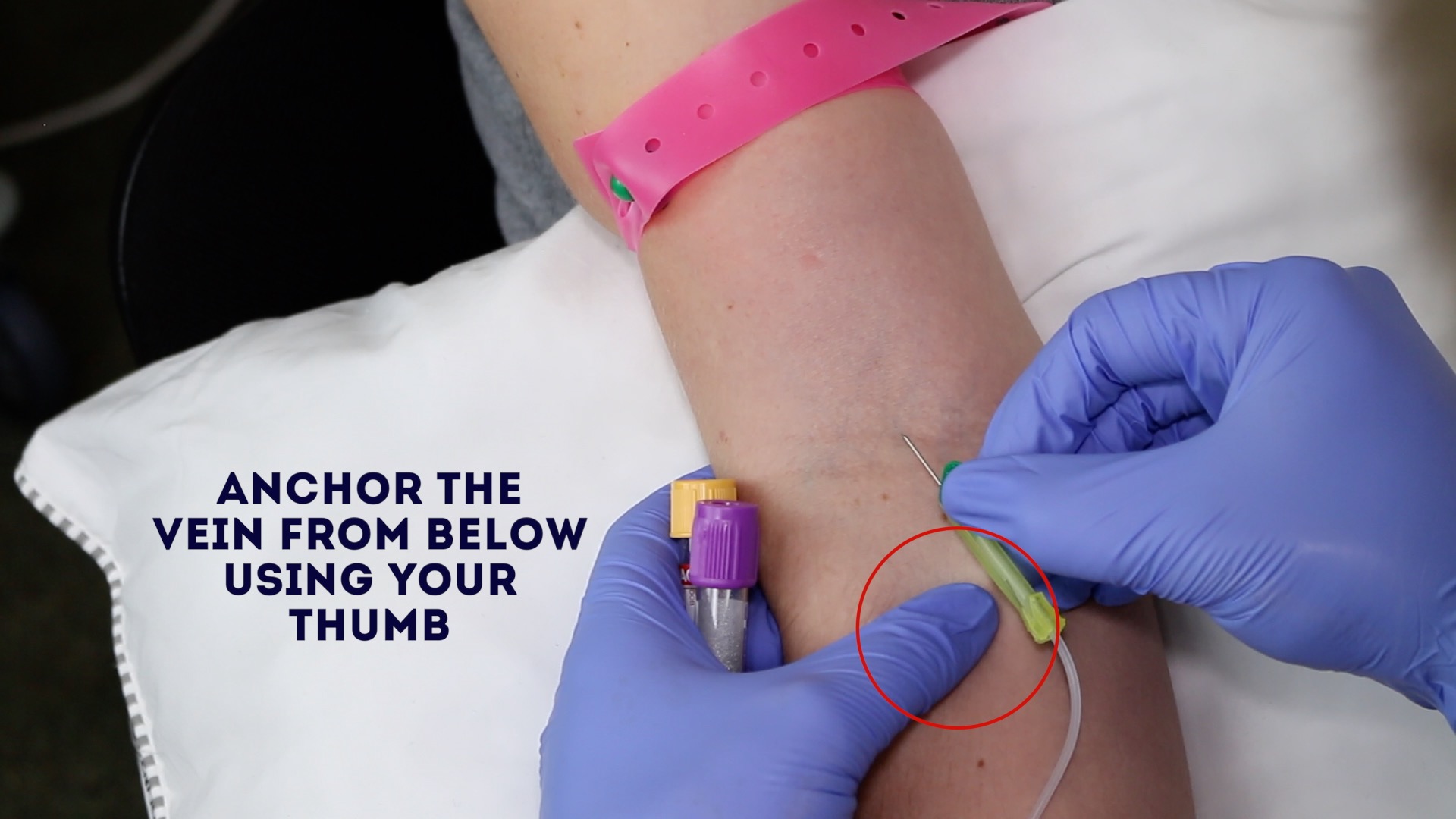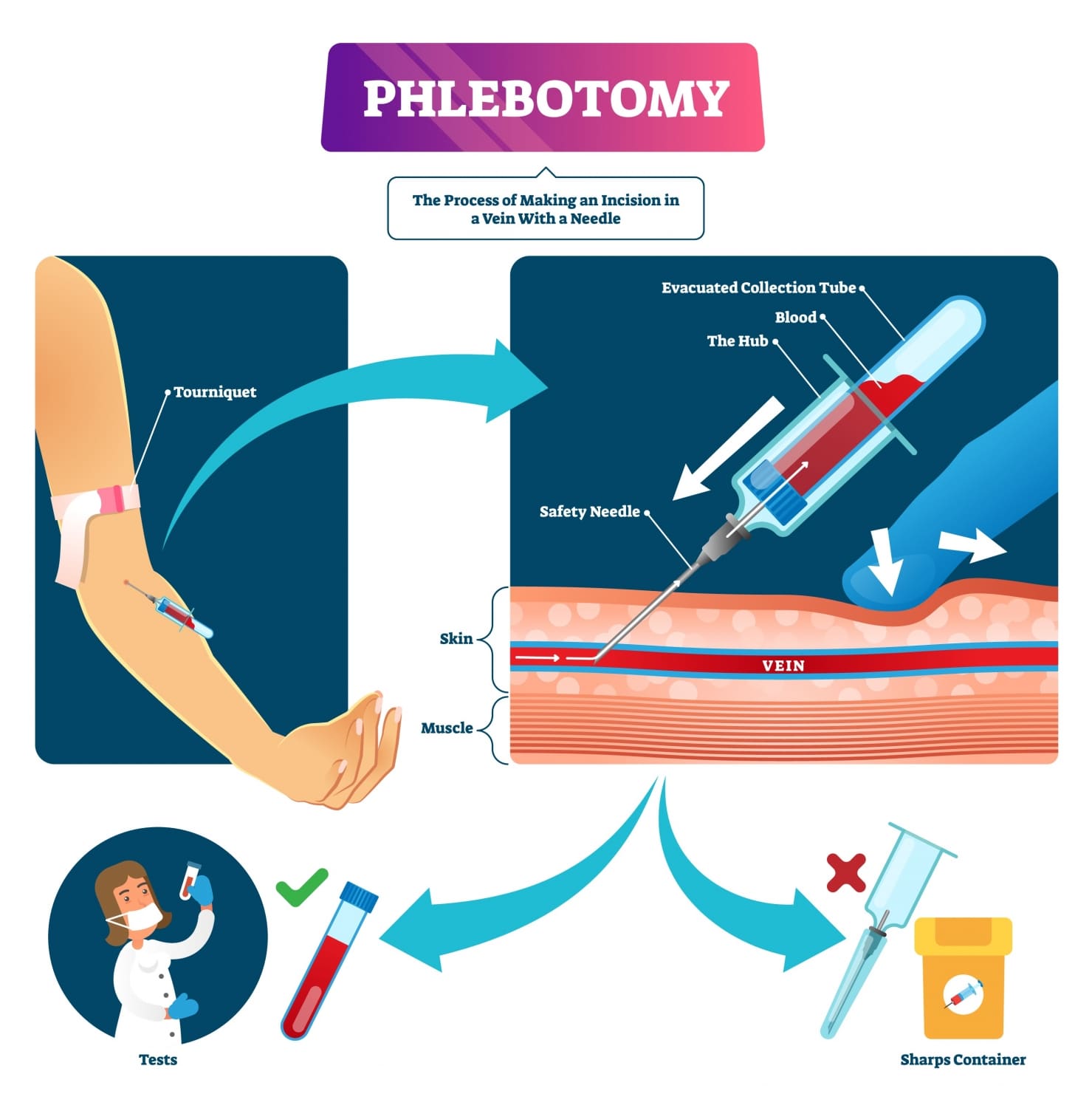How To Get Your Veins Ready For Blood Draw
How To Get Your Veins Ready For Blood Draw - Massage the arm, from wrist to elbow, to force blood into the vein. A phlebotomist will need to find a good, strong vein from which to draw blood. Web how to make your veins pop out to give blood. This is one of the first. Web here are preparation tips you can follow on the day of your blood test: Activity will promote a stronger blood flow. Drink plenty of water right up to 30 minutes before your appointment. Adequate hydration improves blood flow, making your veins more. Then, using the index and second finger, tap the puncture site. If the median cubital, cephalic, or basilic veins can’t be found, then go. Activity will promote a stronger blood flow. One of these challenges for phlebotomists is drawing blood when the veins are difficult to. Eat a big meal before if you can. Work with your nurse and chat about your veins. Web how to make your veins pop out to give blood. Web the standard technique for doing this [drawing blood] is to place a tourniquet on the upper arm around the biceps, with the aim to dilate the veins in. The first step in drawing blood correctly is to identify the appropriate veins to puncture. Staying hydrated keeps more fluid in your veins, making the blood. One of these challenges for. Web how to make your veins pop out to give blood. Additionally, you can put a warm compress on the vein where the blood will. Web walk briskly and shake hands vigorously. One of these challenges for phlebotomists is drawing blood when the veins are difficult to. If you know in advance that you will have a blood test, it. For an experienced professional, this. Web before getting your blood drawn, drink plenty of fluids to help your blood flow better. Massage the arm, from wrist to elbow, to force blood into the vein. Web getting hydrated in advance and warming up your arms can help you prepare for a blood draw. Additionally, you can put a warm compress on. You can even do this in bed. If the median cubital, cephalic, or basilic veins can’t be found, then go. Web before getting your blood drawn, drink plenty of fluids to help your blood flow better. One of these challenges for phlebotomists is drawing blood when the veins are difficult to. Ask your doctor if you. These by no means need to be anything extravagant. The first step in drawing blood correctly is to identify the appropriate veins to puncture. One of these challenges for phlebotomists is drawing blood when the veins are difficult to. Additionally, you can put a warm compress on the vein where the blood will. Web drinking plenty of water in the. Web the standard technique for doing this [drawing blood] is to place a tourniquet on the upper arm around the biceps, with the aim to dilate the veins in. Drink plenty of water right up to 30 minutes before your appointment. Web getting hydrated in advance and warming up your arms can help you prepare for a blood draw. Web. For adult patients, the most common and first. Work with your nurse and chat about your veins. Web how to make your veins pop out to give blood. Drink plenty of water right up to 30 minutes before your appointment. Web • eat plenty of protein. A phlebotomist will need to find a good, strong vein from which to draw blood. Eat a big meal before if you can. Staying hydrated keeps more fluid in your veins, making the blood. Adequate hydration improves blood flow, making your veins more. The first step in drawing blood correctly is to identify the appropriate veins to puncture. Web drinking plenty of water in the days leading up to your blood draw can make your veins easier to find, which can reduce discomfort during the procedure. Eat a big meal before if you can. Additionally, you can put a warm compress on the vein where the blood will. Working in the medical field comes with many challenges, new. Web here are preparation tips you can follow on the day of your blood test: Staying hydrated keeps more fluid in your veins, making the blood. Eat a big meal before if you can. Work with your nurse and chat about your veins. Try doing curls with dumbbells. Working in the medical field comes with many challenges, new and old. Activity will promote a stronger blood flow. Web the standard technique for doing this [drawing blood] is to place a tourniquet on the upper arm around the biceps, with the aim to dilate the veins in. Don’t eat right before your appointment if you think you might get nauseous when your blood is drawn. For adult patients, the most common and first. Web drinking plenty of water in the days leading up to your blood draw can make your veins easier to find, which can reduce discomfort during the procedure. Web before getting your blood drawn, drink plenty of fluids to help your blood flow better. Web walk briskly and shake hands vigorously. If the median cubital, cephalic, or basilic veins can’t be found, then go. Additionally, you can put a warm compress on the vein where the blood will. One of these challenges for phlebotomists is drawing blood when the veins are difficult to.
How to Draw Blood from Hard to Hit Veins 15 Steps (with Pictures)

How to find a Vein in the Hand for Starting IVs & Drawing Blood YouTube

Self Venous Blood Draw Demo YouTube

How to Draw Blood from Hard to Hit Veins 15 Steps (with Pictures)

Vein Finder Assisted Blood Draw SIFSOF

How to draw blood from a patient’s vein as painlessly as possible

Venepuncture Procedure OSCE How to Take Blood Geeky Medics

How To Draw Blood A StepbyStep Guide Nurses News Hubb

How to draw blood from a patient’s vein as painlessly as possible

how to draw blood from a vein? YouTube
Massage The Arm, From Wrist To Elbow, To Force Blood Into The Vein.
Web • Eat Plenty Of Protein.
The First Step In Drawing Blood Correctly Is To Identify The Appropriate Veins To Puncture.
Use Alternate Sites (Back Of Hand, Forearm) The First Area For Venipuncture Is In The Antecubital Fossa.
Related Post: